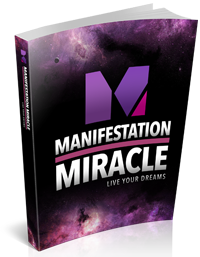Natural Remedies to Treat Addiction Withdrawal
If you’re struggling with substance abuse, you’ve made a good choice in researching safe and healthy ways to withdrawal. Withdrawal, or detoxing, is to abstain from the drug until your body is rid of it. Although it’s important to always safely detox in a healthcare setting, most facilities will honor your desire to withdrawal naturally. In fact, your desire to totally rid yourself of synthetic substances will ensure that you don’t become addicted to another substance, such as methadone or Suboxone.
Things to Consider Before Using Natural Remedies to Withdrawal
Some addictions don’t create a physical dependency. Although these are difficult to withdrawal from, they’re not dangerous to withdrawal from. The same cannot be said for physically addictive substances, such as pain killers or heroin. When you’re dependent on opiates, such as OxyContin, it can be extremely dangerous to cut yourself off from them. It cannot be stressed enough how necessary a medically trained professional is for the detox process, as they are trained to help you come off the drug safely.
You may be able to estimate how long detoxification will take by considering the drug’s detection window. For example, OxyContin can be detected in blood for up to 24 hours. The withdrawal period is dependent on a number of factors, including your age, how long you’ve been using, and how healthy you are. It’s also important to note that physical withdrawal doesn’t necessarily guarantee total independence from the drug. You’ll need to address the mental addiction too.
[do_widget id=text-16]
Herbal Medications that Ease Withdrawal Symptoms
There are many Chinese herbal medications that are said to ease withdrawal symptoms. In a double-blind randomized trial, Tai-Kang-Ning (TKN) was found to be an effective treatment of moderate-to-severe acute heroin withdrawal syndrome. It’s a Chinese herb that performs well as a tolofexidine. Ginseng and U’finer can also help to ease symptoms, but ensure that you’re following correct dosage procedure and that these medications don’t react negatively with anything your doctor may have prescribed.
Ibogaine can be used to withdrawal from opiates. It’s a psychedelic made from the root bark of Tabernanthe iboga, the root bark of an African rainforest shrub. Ibogaine does cause powerful hallucinations, but several scientific studies have shown it to be an incredibly effective addiction cure. In one such study, conducted by science researcher Howard Lotsof, 29 out of 35 patients were successfully treated despite having unsuccessful experiences with other treatments.
Practice Mindfulness Meditation
 Mindfulness meditation can help you relax and regulate your mood. It has several benefits, according to TheFix.com. “It can lower the levels of stress hormone cortisol, increase immune system compound interleukin, and assist in the body’s ability to detoxify itself of harmful chemicals, which can affect neurotransmitter receptors and alter mood.” It’s really just an effective way to harmonize one’s life, and can help beyond withdrawal. There are mindfulness-based relapse prevention techniques and it can be used to reduce the use of tobacco and alcohol.
Mindfulness meditation can help you relax and regulate your mood. It has several benefits, according to TheFix.com. “It can lower the levels of stress hormone cortisol, increase immune system compound interleukin, and assist in the body’s ability to detoxify itself of harmful chemicals, which can affect neurotransmitter receptors and alter mood.” It’s really just an effective way to harmonize one’s life, and can help beyond withdrawal. There are mindfulness-based relapse prevention techniques and it can be used to reduce the use of tobacco and alcohol.
Psychology Today recommends that you begin by sitting in a quiet space, on the floor or on a chair. Your posture should be upright, but not rigid. Rest your hands on your legs, and gaze ahead. “The idea is that whatever is in front of you is what’s in front of you. Don’t stare or do anything special with your gaze; just let it rest where you’ve set it.” Focus on your breathing, and let your thoughts flow freely.
http://deserthopetreatment.com/oxycontin/stay-in-your-system/
http://www.healthline.com/health/home-remedies-opiate-withdrawal#At-home3
http://www.ncbi.nlm.nih.gov/pubmed/18428069
https://www.regenerativenutrition.com/content.asp?id=105
https://www.thefix.com/content/therapies-outside-box?page=all



